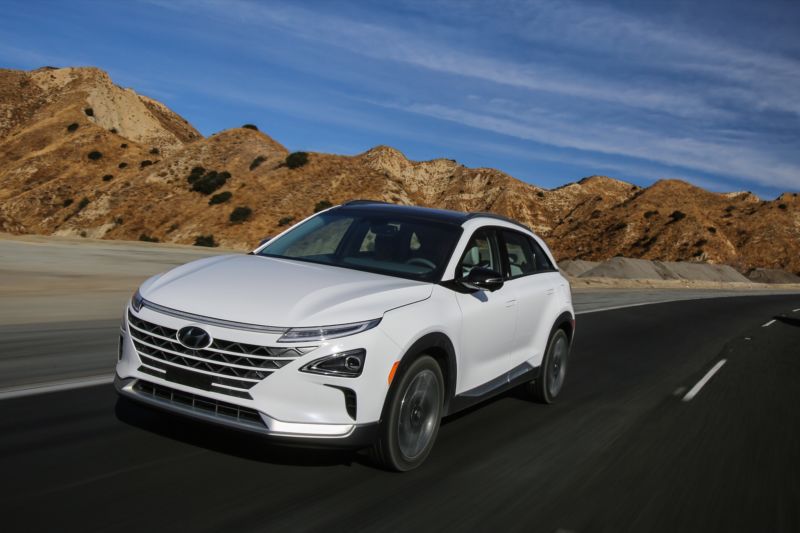
It has been a busy week for Aurora, the self-driving startup founded by veterans of the Google, Tesla, and Uber self-driving programs. On Monday, Aurora announced it had forged a partnership with Fiat Chrysler. On Tuesday, Aurora said it was ending its partnership with Volkswagen. Now Hyundai is deepening its partnership with Aurora with an equity investment.
It’s the latest example of an industry-wide pattern: one after another, car companies have made big investments in self-driving startups. And these deals mean that carmakers are effectively entering into self-driving alliances with one another.
Some carmakers are taking big stakes in self-driving projects
General Motors started the process back in 2016, buying self-driving startup Cruise for more than $500 million. In 2018, GM sold a modest stake in Cruise to Honda, cementing a self-driving alliance between the two companies.
In 2017, Ford invested $1 billion in Argo AI. Media reports suggest that Volkswagen is on the verge of making its own investment in Argo, cementing a self-driving alliance between those two carmakers. Volkswagen made this move after reportedly failing to acquire Aurora last year.
In April, Toyota announced it was leading a $1 billion investment in Uber’s self-driving car program, along with Softbank and auto parts maker Denso. The move follows two previous deals between Toyota and Uber—one worth $300 million in 2016 and another worth $500 million in 2018.
Uber also has a partnership with Volvo that dates back to 2016. This week, Volvo and Uber unveiled a new version of Uber’s self-driving prototype, which is built around Volvo’s XC90 SUV.
Now Hyundai and Fiat Chrysler are aligning themselves more tightly with Aurora.
There are important differences between these deals. GM and Ford are the majority owners of Cruise and Argo, respectively. By contrast, Uber and Aurora remain independent companies, with car companies only as minority shareholders or strategic partners.
But if recent industry trends continue, Aurora may face growing pressure to deepen its connection to its current partners. Aurora is trying to build a technology stack that can be adopted by a wide range of carmakers, a strategy that requires Aurora to not become too deeply entangled with any single carmaker. But if most car companies place big bets on rival self-driving technology—as Ford, GM, Honda, and arguably Toyota have already done, and Volkswagen is reportedly on the verge of doing—then that strategy won’t really be viable.
Which means that over time Hyundai and Aurora may grow increasingly dependent on one another. The two companies may find it in their mutual interest to deepen their relationship, with Hyundai taking an even larger stake in Aurora and Aurora increasingly focusing on meeting Hyundai’s autonomy needs.
For their part, BMW and Daimler announced a self-driving partnership back in February. But the German luxury carmakers have yet to take major stakes in self-driving startups the way many of their larger rivals have. BMW also announced a partnership with FCA and Intel’s Mobileye to work on self-driving technology back in 2017.
Waymo, Nissan, Renault, and FCA could be natural partners
While Fiat Chrysler announced a deal with Aurora this week, it’s not clear how committed the carmaker is to that relationship. FCA also has a long-standing deal to supply vehicles to Google’s Waymo, though it hasn’t taken a significant financial stake in Waymo, either.
Nissan and Renault, two car companies linked together in a complex cross-ownership arrangement, still seem to be searching for a clear self-driving strategy. Reports in February suggested that they were in the final stages of negotiating an alliance with Waymo, but no such agreement has been announced. Those negotiations may have been complicated when Carlos Ghosn, then the CEO of both companies, was forced to step down due to criminal charges against him.
This week Nissan and Renault announced that they were opening a new self-driving research center in Israel.
All of the recent deals between car companies and self-driving companies could put Waymo in a difficult position. Waymo has been working on self-driving technology much longer than any of its rivals, and the company aimed to introduce a driverless taxi service long before others came to market. In that scenario, Waymo would have its choice of automotive partners, so Waymo has been keeping its options open.
But the reality is that Waymo will need help from automakers to scale up rapidly. As more and more automakers commit to Waymo’s rivals, Waymo risks becoming stranded—with industry-leading sensors and software but limited capacity to integrate the technology into a large number of vehicles.
Renault has also held talks to merge with Fiat Chrysler. So it’s not hard to imagine Waymo, Renault, Nissan, and Fiat Chrysler forging a global self-driving alliance in the coming months.
https://arstechnica.com/?p=1521635

